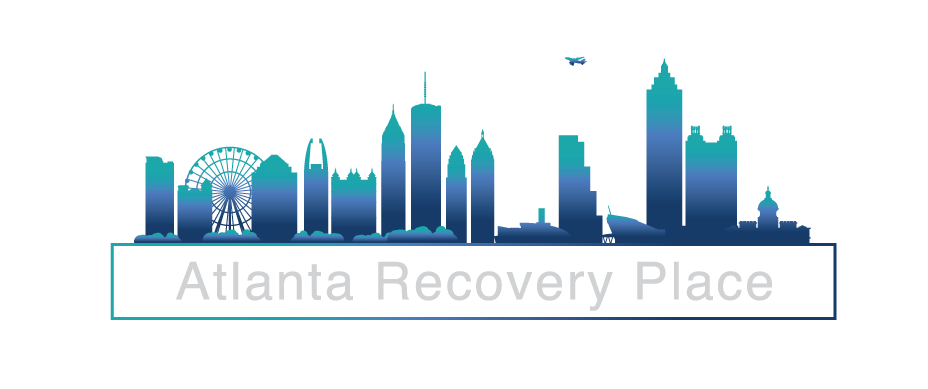Borderline Personality
Borderline Personality Disorder Treatment in Georgia
When someone has both a mental health disorder, including a personality disorder, and an addiction to drugs or alcohol, it’s known as a co-occurring disorder. Co-occurring disorders require dual diagnosis treatment. During a dual diagnosis treatment program, a client receives treatment for both conditions, which research shows helps optimize recovery outcomes.
At Atlanta Recovery Place, we offer a variety of levels of rehab programs and dual diagnosis treatment. We are an Georgia recovery center that can help you overcome addiction, manage mental health symptoms and achieve your lifelong goals. We encourage you to contact us if you’re interested in borderline personality disorder treatment in Georgia, along with drug and alcohol recovery programs.
What Our Clients Have to Say
Discover why Atlanta Recovery Place has over thirty-five 5-star reviews on Google.
What Is Borderline Personality Disorder?
Borderline personality disorder, or BPD, is a psychiatric illness that significantly affects the ability to control emotions. This lack of emotional control characterizing BPD can increase impulsive behaviors. BPD also affects how you feel about yourself, and it has negative effects on relationships.
Broadly, a personality disorder is a type of mental health condition where you’re significantly different from the average person as far as how you think, relate to other people, feel and perceive situations.
When someone has a personality disorder, it can be challenging to relate to others because of their distorted beliefs or feelings. A personality disorder can be diagnosed as mild, moderate, or severe and may have periods of remission.
With borderline personality disorder, symptoms can include:
- Feelings of insecurity.
- Fears of abandonment and taking drastic steps to avoid it, whether it’s real or imagined
- Instability in relationships.
- Splitting in relationships means alternations between idealization, where someone feels very in love, and devaluation, where they might hate the other person.
- Instability in self-image affects moods, goals, opinions, and relationships.
- Impulsive behaviors can include misuse of substances as well as excessive spending or unsafe sex.
- Self-harm.
- Suicidal attempts or threats.
- Chronically feeling empty or bored.
- Intense, inappropriate, or uncontrollable anger that is often followed by feeling guilty or shameful.
- Dissociative feelings, which means disconnecting from one’s sense of identity or thoughts.
Researchers and scientists don’t fully know the causes of BPD, but they do believe the development of any personality disorder is most likely due to combined factors, including genetics, brain function, and environmental factors, like early exposure to traumatic events.
Atlanta Recovery Place offers borderline personality disorder treatment in Georgia, along with treatment for co-occurring substance addictions.
Request a Callback
Atlanta Recovery Place has caring representatives available 24/7 to help you or your loved one when dealing with substance abuse. Request a 100% confidential callback now to start your journey.
BPD and Addiction
If someone is struggling with borderline personality disorder, they are very likely also to have a substance use disorder.
BPD is thought to affect around 2.7% of adults, and about 78% of those individuals also develop a substance use disorder during their lives. When you’re struggling with an addiction as well as BPD, it can make your symptoms worse, especially impulsivity. There are higher links between addiction and suicidal behavior, and you may have shorter periods of substance abstinence.
Anytime you have a combination of borderline personality disorder along with an addiction, you could likely benefit from specialized treatment.
There are probably multiple reasons someone with BPD is more predisposed to addiction. There could be links between similar brain pathways influencing both mental health conditions. It’s also possible that the impulsivity that’s a symptom of BPD predisposes a person to substance use and then addiction. Many people with personality disorders, primarily when they aren’t being managed and treated, might turn to drugs and alcohol as a way to self-medicate.
The symptoms of addiction, whether a person has a co-occurring personality disorder or not, include:
- Loss of control over the use of the substance, including strong cravings, taking larger doses than intended, and using it for more extended periods.
- Social problems, such as not meeting obligations at home, work, or school, or problems in relationships.
- Risky use, like using substances while driving or continuing to use them even when they’re causing known harmful effects.
- Tolerance or withdrawal can be physical signs of substance dependence.
For anyone dealing with a personality disorder along with addiction, Atlanta Recovery Place offers BPD treatment in GA. Our outpatient borderline personality disorder treatment in Georgia is tailored to the needs of each individual, and we provide services for people who are 16 and up.
LET US HELP YOU.
Treating BPD and Addiction
Many of the most effective, evidence-based treatments for BPD are similar to treatment approaches for addiction. Dual diagnosis treatment is an essential part of a program because historically, people with mental health disorders were often either left out of addiction treatment or it wasn’t included in their treatment.
Someone with an untreated co-occurring mental health disorder is more likely to experience negative outcomes throughout their life, such as relationship problems, psychiatric episodes, hospitalization, unemployment, and arrest, along with addiction.
With dual diagnosis treatment, the team looks at the relationship between a mental health disorder and substance use and works to treat both separately but within the context of one another. If one is treated and not the other, the risk of relapse is much higher.
For a long time, BPD was considered challenging to treat, but now, using evidence-based approaches, it’s possible to improve function, have a better quality of life, and experience fewer, less severe symptoms. To achieve these things, you need to work with licensed mental health professionals.
Often, the first-line therapy for both BPD and addiction is called psychotherapy or talk therapy. This can occur individually or in a group setting.
Dialectical behavioral therapy and cognitive behavioral therapy are two specific approaches. Dialectical behavioral therapy (DBT) was created specifically for BPD. It uses mindfulness so you can learn about your current situation and emotional state. During DBT, you can also learn skills that help you control your more intense emotions, reduce your behaviors that might be self-destructive, and improve relationships.
If you’re looking for Georgia borderline personality treatment, we encourage you to contact our team at Atlanta Recovery Place.
We Work With Most Major Insurance Providers
Most major health insurance providers with out-of-network benefits will help cover the cost of our atlanta treatment program.
Call us or email us to find out your coverage options when seeking treatment for drug & alcohol abuse.
Dual Diagnosis Borderline Personality Disorder Treatment in Georgia
At Atlanta Recovery Place, we offer not just BPD treatment in Georgia but addiction treatment at the same time. Our levels of care include:
During a partial hospitalization program or PHP, you receive care on an outpatient basis. The programs are structured, addressing your physical and mental needs. These programs are intensive and also include medical care, but you don’t have to stay overnight.
An IOP lets clients move through recovery at the pace that works for them, balancing their daily life with their treatment.
An outpatient program includes therapy, medication management, and support groups, but you can maintain your schedule outside of the program. There’s a sense of flexibility and accountability, but also the support you need. ARP is an outpatient drug rehab in Georgia that can help.
The earliest days of your recovery can be the most delicate. A sober living home lets you live with people with a similar experience to your own, encouraging your sobriety while also providing you a sense of independence as you complete your Georgia borderline personality disorder treatment.
If you’d like to learn more about borderline personality treatment in Georgia and our outpatient programs for addiction to drugs and alcohol, please contact our team today.




